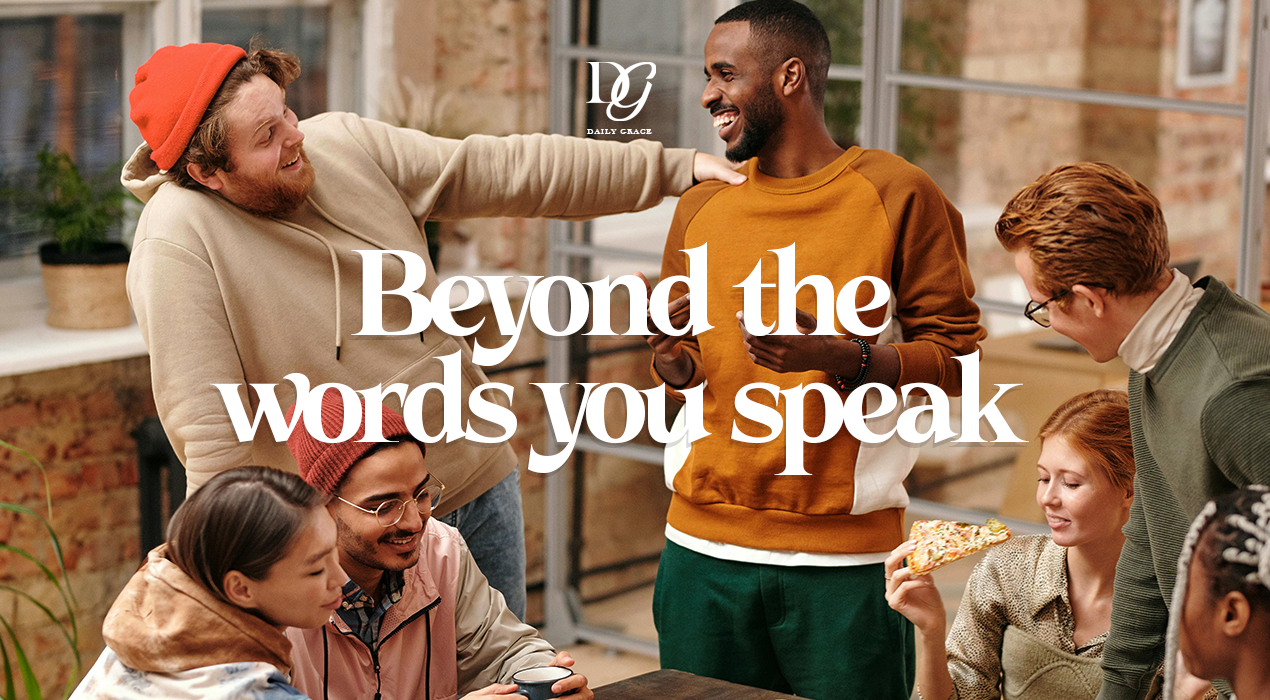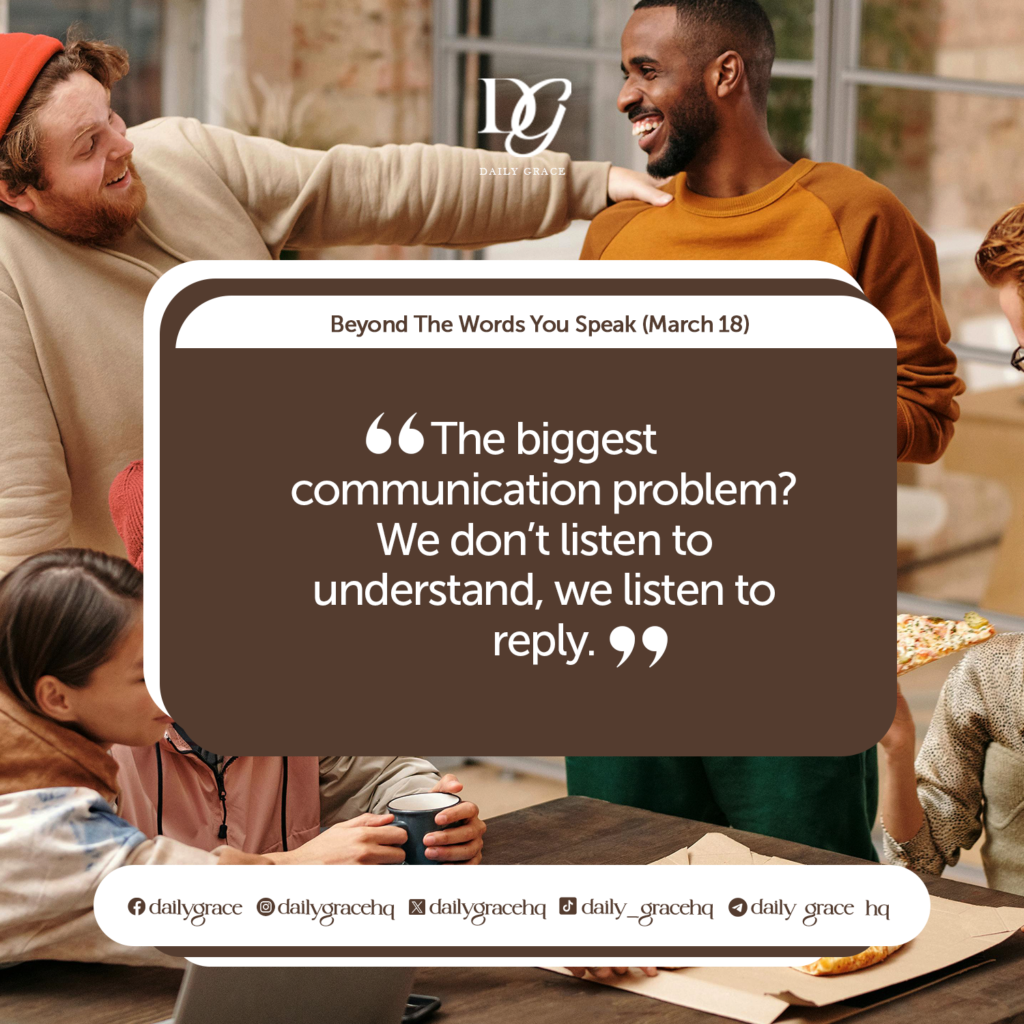Inspiring Change Every Day with Grace
Beyond The Words You Speak

Communication is tricky. Words are spoken, but meanings get lost somewhere between the lips that say them and the ears that hear them.
Someone says, “I’m fine,” but what they really mean is I feel abandoned. A friend says, “Do what you want,” but their tone screams, “I need you to care.” A partner says, “We need to talk,” and suddenly, your mind is racing through every possible mistake you might have made.
The truth is, that hearing and understanding are two different things, and emotionally intelligent listening is the bridge between them.
The reason we often misinterpret people isn’t just about words; it’s about emotions, experiences, and biases. More like selective listening, which is the tendency to hear what aligns with our fears, assumptions, or past wounds.
If you’ve been betrayed before, a simple “I’ll call you later” might sound like “I’m avoiding you.” If you struggle with self-worth, “I need space” can feel like “You’re not enough.” We don’t just listen with our ears; we listen with our emotions, and sometimes, those emotions distort reality.
Sarah is feeling overwhelmed with work, she returns home, sighs and says to her husband, “I need some space.” Her husband, who has a history of feeling rejected, hears it as “I don’t love you anymore.”
Instead of asking what she means, he withdraws, and then his silence starts to turn distance into an actual problem. Sarah, confused by his reaction, assumes he doesn’t care. And just like that, a misunderstanding blooms into unnecessary tension, all because emotions filtered words through the wrong lens.
So how do we become better listeners? Essentially, by listening to understand, not to react. It means resisting the urge to immediately defend, analyse, or respond.
Instead, you pause and ask yourself, “What do they really mean?” Listen for tone, emotion, and unspoken words. Sometimes, “I don’t want to talk about it” really means “I’m afraid of what I’ll say if I do.” Emotionally intelligent listening requires patience, and the willingness to hear beyond words and give people space to clarify their feelings.
Another key technique is mirroring and validation. Instead of assuming, repeat back what you think you heard: “It sounds like you’re feeling overwhelmed, am I right?” This gives the other person a chance to confirm or correct you.
You’d be surprised how often what someone meant and what you heard are worlds apart. And when emotions run high, sometimes the best response is silence, just holding space for someone to express themselves without rushing in to fix, judge, or dismiss their feelings.
Centrally, emotionally intelligent listening isn’t about catching every word, it’s about catching the meaning. It’s about setting aside personal biases long enough to hear what someone intended to say, not just what they literally said.
It’s about understanding that sometimes, people speak in coded language not to deceive, but because emotions are hard to translate into words. Therefore, if we can learn to decode them, we’ll build stronger, deeper, and more honest connections, because in the end, people don’t just want to be heard, they want to be understood.
No Copyright infringement intended.
Have you ever misunderstood what someone meant and later realized you were completely wrong? What happened?
Use the this link to share your story and experience anonymously https://gdpd.xyz/dailygrace
PS: Kindly Follow our WhatsApp Channel at https://whatsapp.com/channel/0029VawUlQGBPzjQXzs6fX2Q for more engaging content.


This has happened to me often.
Was in a relationship where I had to choose my words carefully when there was a misunderstanding.